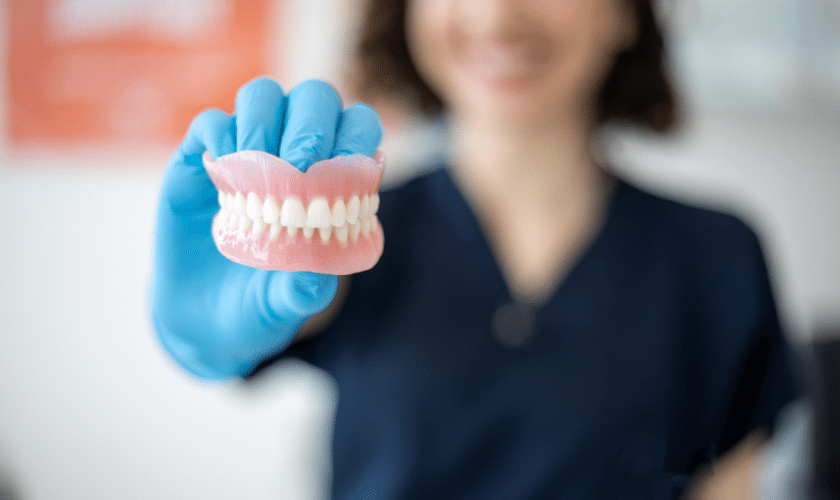908-282-3366
Exploring the Reasons Behind Denture Pain and Solutions

Wearing dentures can significantly improve your quality of life, restoring your ability to eat, speak, and smile with confidence. However, denture pain is a common issue that many users face. Understanding the causes of this discomfort and finding effective solutions can make a world of difference. Let’s delve into the reasons behind denture pain and explore practical ways to alleviate it.
Ill-Fitting Dentures
One of the primary causes of denture pain is ill-fitting dentures. Over time, changes in the structure of your gums and jawbone can alter the fit of your dentures, leading to soreness and irritation. If your dentures are too loose, they can move around, causing friction and pressure points. On the other hand, if they are too tight, they can compress your gums, leading to discomfort.
Regular dental check-ups are crucial to ensure that your dentures fit properly. Your dentist can make adjustments or recommend a new set of dentures if necessary. Using denture adhesives can also help secure loose dentures temporarily, providing relief until you can visit your dentist.
Gum Infections and Sores
Gum infections and sores are another common reason for denture pain. Poor oral hygiene can lead to bacterial growth, causing infections and inflammation. Dentures that are not cleaned properly can harbor bacteria, leading to sore spots and gum irritation.
Maintaining excellent oral hygiene is essential to prevent infections. Soak your dentures in a disinfectant solution overnight to eliminate bacteria. Additionally, ensure you clean your gums, tongue, and any remaining natural teeth to reduce the risk of infection.
Pressure Points and Sore Spots
Pressure points and sore spots can develop due to uneven pressure distribution when chewing or speaking. These sore spots are often caused by high spots on the denture’s surface or irregularities in the fit. Over time, these pressure points can become painful and lead to ulcers or sores on your gums.
To address this issue, your dentist can perform a process called “denture adjustment,” where they smooth out the high spots and ensure even pressure distribution. Regular follow-ups with your dentist are essential to catch and correct these issues early, preventing long-term discomfort.
Allergic Reactions
Some individuals may experience allergic reactions to the materials used in their dentures. This can lead to redness, swelling, and pain in the gums and surrounding tissues. Common allergens include certain metals and acrylic materials used in denture construction.
If you suspect an allergic reaction, consult your dentist immediately. They can identify the allergen and suggest alternatives, such as hypoallergenic denture materials. Switching to these alternatives can significantly reduce or eliminate allergic reactions, providing relief from pain and discomfort.
Bone Resorption
Bone resorption is a natural process that occurs after tooth loss, where the jawbone gradually shrinks. This can affect the fit of your dentures, leading to pain and discomfort. As the bone resorbs, the dentures may become loose, causing them to shift and create sore spots.
To mitigate bone resorption, consider dental implants, which can help maintain bone structure by providing stimulation similar to natural teeth. Alternatively, regular relining of your dentures can help maintain a better fit as your jawbone changes over time.
Dry Mouth
Dry mouth, or xerostomia, can contribute to denture pain. Saliva acts as a lubricant, helping dentures fit comfortably and reducing friction. A lack of saliva can lead to increased friction and sore spots on the gums.
If you experience dry mouth, staying hydrated is essential. Drink plenty of water throughout the day and consider using saliva substitutes or moisturizing mouth sprays. Chewing sugar-free gum can also stimulate saliva production. If dry mouth persists, consult your dentist for additional treatment options.
Overuse and Poor Habits
Overusing your dentures or engaging in poor habits can exacerbate pain and discomfort. Wearing dentures 24/7 without giving your gums a break can lead to sore spots and irritation. Additionally, using your dentures to open packages or bite on hard objects can cause damage and increase pain.
It’s important to remove your dentures at night to allow your gums to rest and recover. Practicing good denture habits, such as not using them for anything other than eating and speaking, can help extend their lifespan and reduce pain.
Solutions and Relief
Understanding the causes of denture pain is the first step in finding relief. Here are some general tips to alleviate denture discomfort:
- Regular Dental Visits: Ensure your dentures are adjusted properly and fit well.
- Good Oral Hygiene: Clean your dentures and mouth daily to prevent infections.
- Denture Adhesives: Use adhesives to secure loose dentures temporarily.
- Hydration: Drink plenty of water to combat dry mouth.
- Rest Your Gums: Remove your dentures at night to allow your gums to heal.
- Avoid Hard Foods: Stick to soft foods that don’t put excessive pressure on your gums.
Consulting Your Dentist
If you experience persistent pain, consult your dentist promptly. They can identify the underlying cause and provide tailored solutions. Whether it’s adjusting your dentures, treating an infection, or recommending alternative materials, professional guidance is invaluable.
Living with dentures doesn’t have to be painful. By understanding the causes of denture pain and implementing effective solutions, you can enjoy the benefits of your dentures comfortably and confidently. Remember, regular care and maintenance are key to a pain-free experience with dentures.



